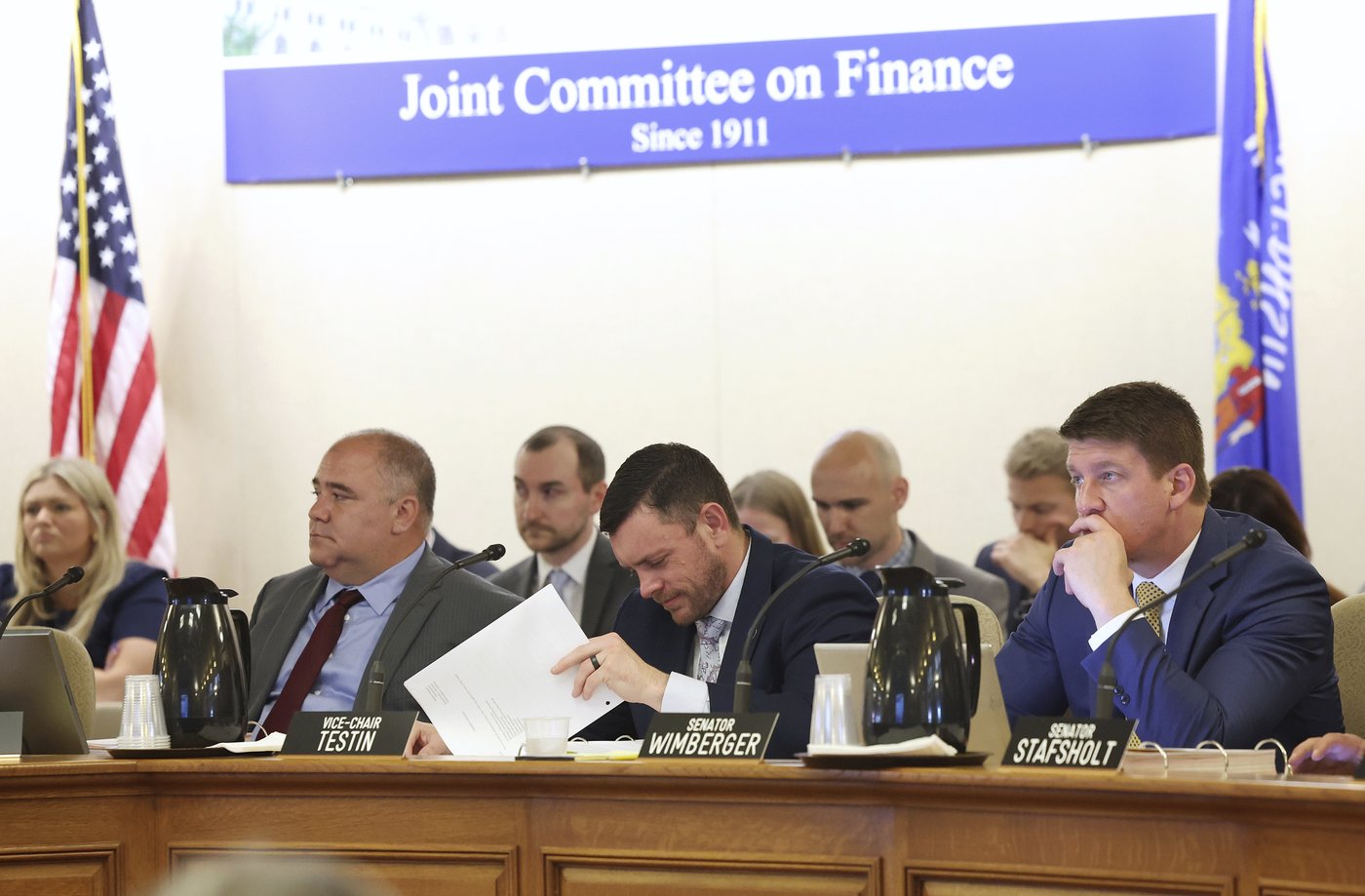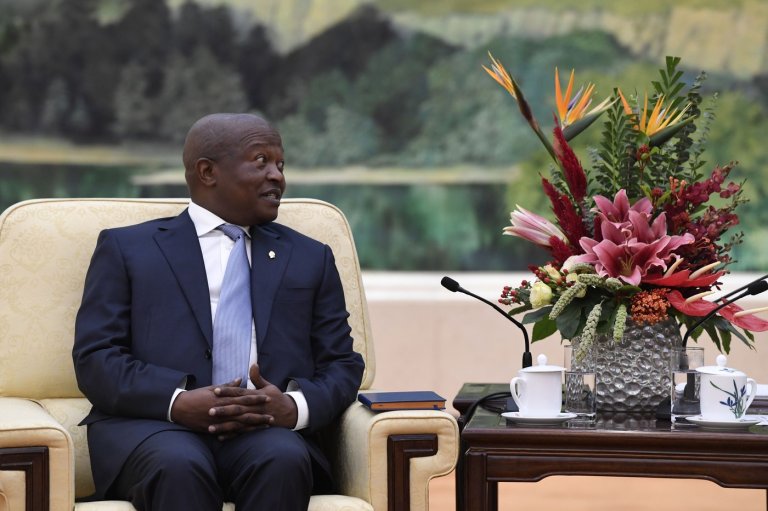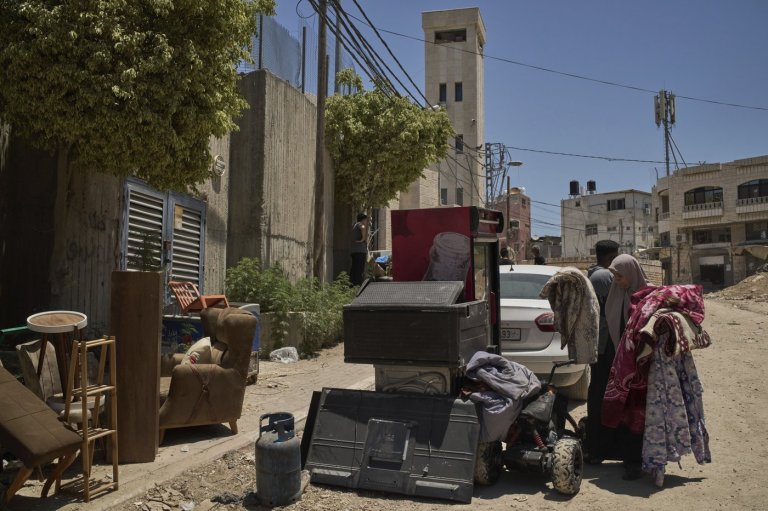
Wisconsin Senate passes state budget in rush to help hospitals
MADISON, Wis. (AP) — The Wisconsin Senate passed a compromise state budget on a bipartisan vote Wednesday in a race to approve a deal reached between Gov. Tony Evers and majority Republicans.
Lawmakers were rushing to pass the plan and get it signed into law before federal law changes take effect that could cost Wisconsin hospitals $1.5 billion. The Assembly, also controlled by Republicans, was expected to pass it late Wednesday night and send the $111 billion budget to Evers for his quick signature.
Wisconsin’s two-year spending plan would affect nearly every person in the battleground state. Income taxes would be cut for working people and retirees by $1.4 billion, sales taxes would be eliminated on residential electric bills and it would cost more to get a driver’s license, buy license plates and title a vehicle.
A fast-moving plan
There was urgency to pass the budget because of one part that increases an assessment on hospitals to help fund the state’s Medicaid program and hospital provider payments. Medicaid cuts up for final approval Wednesday in Congress cap how much states can get from the federal government through those fees.

The budget would increase Wisconsin’s assessment rate from 1.8% to the federal maximum of 6% to access federal matching funds. But if the federal bill is enacted first, Wisconsin could not raise the fee, putting funding for rural hospitals at risk.
In the rush to get done, Republicans took the highly unusual move of bringing the budget up for votes on the same day. In at least the past 50 years, the budget has never passed both houses on the same day.
“We need to get this thing done today so we have the opportunity to access federal funding,” Republican Assembly Speaker Robin Vos said at the start of debate just before 8 p.m.
Governors typically take several days to review and sign the budget after it’s passed.
But Vos said he hoped that Evers would sign the budget late Wednesday night, or early Thursday, so it would be enacted before Trump signs the federal tax and spending cuts package.

A spokesperson for Evers declined to comment on the governor’s timeline.
Bipartisan compromise
In a concession to the Democratic governor, Republicans also agreed to spend more money on special education services in K-12 schools, subsidize child care costs and give the Universities of Wisconsin its biggest increase in nearly two decades. The plan would also likely result in higher property taxes in many school districts due to no increase in general aid to pay for operations.
The budget also calls for closing a troubled aging prison in Green Bay by 2029, but stops short of enacting a more broad prison overhaul plan put forward by Evers.
Evers, who has broad partial veto powers, has promised not to kill any portions of the budget he agreed to with Republicans.

Evers, who is midway through his second term, said he would announce his decision on seeking a third term after he has signed the budget. He has 10 working days after the Legislature passes the budget to take action on it.
Republicans need Democratic votes
The Senate passed the budget 19-14, with five Democrats joining with 14 Republicans to approve it. Four Republicans joined 10 Democrats in voting no.
Democratic senators were brought into budget negotiations in the final days to secure enough votes to pass it.
“It’s a bipartisan deal,” Senate Minority Leader Dianne Hesselbein said before the vote. “I think everybody left the table wishing it was different, but this is something everyone has agreed on.”

Democrats said newly drawn legislative maps, which helped them pick up seats in November and narrow the Republican majorities, led to greater compromise this year.
“That gave us leverage, that gave us an opportunity to have a conversation,” Democratic Sen. Mark Spreitzer said.
But still, Spreitzer said the budget “fell far short of what was needed on our priorities.” He and other Democrats said it didn’t go enough to help fund child care, K-12 schools and higher education, in particular.
Republican Sen. Patrick Testin, a member of the budget committee, said the plan was far from perfect, but “this is where we’re at with divided government.”
Join the Conversation!
Want to share your thoughts, add context, or connect with others in your community? Create a free account to comment on stories, ask questions, and join meaningful discussions on our new site.












Leave a Reply
You must be logged in to post a comment.